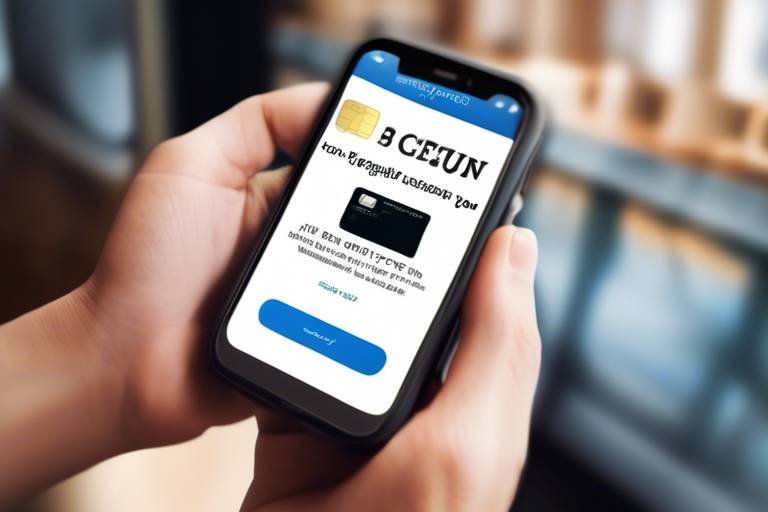What Happens When Your Online Accounts Are Compromised?
In our increasingly digital world, the security of our online accounts is more critical than ever. Imagine waking up one day to find that your email, social media, or even bank account has been compromised. The feeling is akin to having your home broken into—an unsettling violation of your personal space. When your online accounts are compromised, a cascade of consequences can unfold, impacting not just your immediate security but also your long-term financial health and emotional well-being.
First and foremost, the immediate consequences of a breach can be alarming. Unauthorized access can lead to data theft, where hackers may steal sensitive information, such as passwords, personal identification numbers, or even financial data. This is not just a minor inconvenience; it opens the door to identity fraud, where someone could impersonate you, wreaking havoc on your life. It's a harsh reality that many people face, and understanding these risks is the first step in safeguarding your digital identity.
But the implications don't stop at the moment of compromise. The long-term effects can be even more daunting. Once your account has been breached, you may find yourself grappling with financial implications that can ripple through your life for years to come. Imagine discovering unauthorized transactions draining your bank account, or worse, realizing your credit score has plummeted because of fraudulent activities conducted in your name. That's right; a compromised account can lead to significant financial instability.
Moreover, the emotional and psychological effects of having your online accounts compromised can be profound. Feelings of anxiety and stress can become overwhelming, as the sense of violation lingers. You might constantly worry about your safety, your financial health, and whether another breach is just around the corner. It’s as if you’re walking through life with a shadow lurking behind you, always reminding you of the potential dangers that lie in the digital world.
To illustrate the gravity of this situation, let’s take a closer look at some of the potential consequences of a compromised online account:
| Type of Consequence | Description |
|---|---|
| Unauthorized Access | Hackers can access your personal information and accounts without your consent. |
| Data Theft | Sensitive information, such as passwords and financial data, can be stolen. |
| Identity Fraud | Fraudsters can impersonate you, leading to financial and reputational damage. |
| Financial Loss | Unauthorized transactions can drain your finances and affect your credit score. |
| Emotional Distress | Feelings of anxiety and violation can linger long after the breach. |
So, what can you do if you find yourself in this unfortunate situation? The key is to act swiftly and decisively. Taking immediate action can help mitigate some of the damage and protect your digital identity moving forward. In the following sections, we will delve into the essential steps to take after a compromise, how to recover your accounts, and preventative measures to enhance your online security.
- What should I do first if my account is compromised? Immediately change your passwords and enable two-factor authentication if available.
- How can I monitor for unauthorized transactions? Regularly check your bank statements and consider using credit monitoring services.
- Will my insurance cover losses from identity theft? It depends on your policy; review your coverage to understand your protections.
- Can I recover my stolen identity? Yes, with the right steps and support, it is possible to recover your identity.
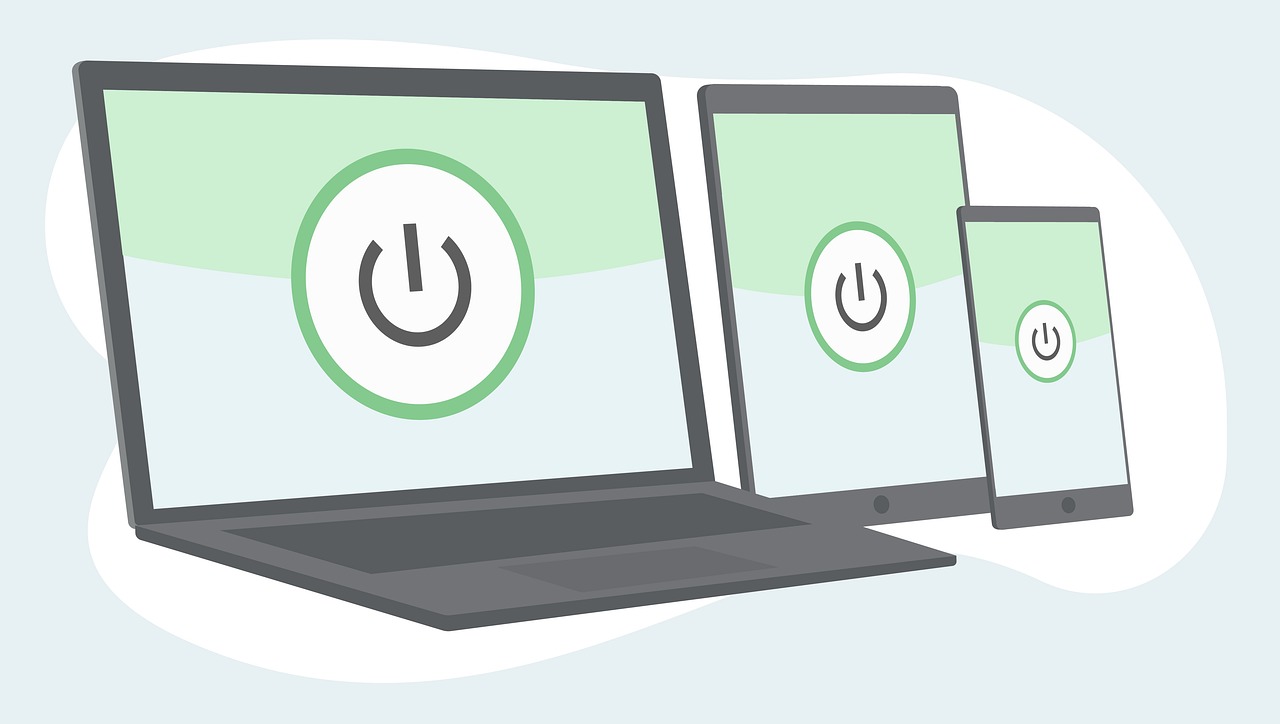
The Immediate Consequences
Understanding the immediate repercussions of an account compromise is crucial for anyone navigating the digital landscape. Imagine waking up one day to find that your online accounts have been breached—it's like discovering that someone has broken into your home. The sense of violation is palpable, and the consequences can unfold rapidly. Unauthorized access to your accounts can lead to a cascade of issues, including data theft and the potential for identity fraud. In just a matter of hours, someone could be impersonating you, accessing your private information, and even making purchases in your name.
One of the first things that can happen is that your personal information, such as email addresses, passwords, and even sensitive financial data, can be harvested by cybercriminals. This data can then be sold on the dark web or used to commit fraud against you or others. The speed at which this occurs is alarming; a breach can lead to unauthorized transactions or changes in account settings before you even realize something is wrong. For instance, if someone gains access to your bank account, they could swiftly drain your funds or make unauthorized purchases, leaving you in a precarious financial situation.
Moreover, the implications extend beyond just financial loss. The emotional impact can be devastating. You may feel a sense of vulnerability and anxiety, constantly worrying about what other information has been compromised and how it might be used against you. This emotional toll can affect your daily life, making it hard to concentrate on work or enjoy time with loved ones. It's not just about the money; it's about the trust you place in the digital world and how that trust can be shattered in an instant.
Additionally, once your account is compromised, you may find it challenging to regain control. Many platforms have specific recovery processes, and if you're not quick to act, you might lose access to your accounts entirely. This can lead to a frustrating cycle of trying to prove your identity and secure your accounts while dealing with the fallout of the breach. You might even have to explain the situation to your friends and family, especially if they receive suspicious messages or requests from your compromised accounts.
In summary, the immediate consequences of an account compromise can be severe and multifaceted. From financial losses and emotional distress to the arduous task of recovering your accounts, the fallout can feel overwhelming. Understanding these risks is the first step in safeguarding your digital identity and preparing for potential breaches. The key takeaway? Stay vigilant and act fast if you suspect your accounts have been compromised.

Long-Term Effects on Personal Security
When your online accounts are compromised, the immediate shock can be overwhelming, but the long-term effects on your personal security can be even more daunting. Imagine waking up one day to find that your financial stability, online reputation, and sense of safety have been jeopardized. A breach isn't just a one-time event; it's a ripple effect that can lead to a cascade of problems in your life. So, what exactly does this mean for you? Let's dive into the nitty-gritty of these long-lasting impacts.
First and foremost, let's talk about your financial health. A compromised account can open the floodgates to unauthorized transactions, leaving you with unexpected charges that can drain your bank account faster than you can say "identity theft." This is not just about a few dollars here and there; it can lead to significant financial losses, and in some cases, it may take months or even years to fully recover. Imagine finding out that your savings have been wiped out because someone else had access to your accounts. It's a nightmare scenario that is all too real for many.
Moreover, the emotional and psychological toll of dealing with a security breach can linger long after the initial incident. Many individuals experience heightened anxiety and stress, constantly worrying about whether their accounts are secure. The sense of violation can be profound, almost like someone has invaded your personal space. You might find yourself second-guessing every online transaction or interaction, which can lead to a less enjoyable online experience.
To break it down further, let's consider the financial implications in a bit more detail. After a breach, you might face:
- Unauthorized Transactions: These can range from small purchases to large withdrawals that can leave you in a financial bind.
- Increased Monitoring Costs: You may need to invest in credit monitoring services or identity theft protection, adding to your expenses.
- Potential Legal Fees: If your information is used fraudulently, you might find yourself entangled in legal battles to clear your name.
And let's not forget about your credit score. A compromised account can lead to missed payments or fraudulent accounts being opened in your name, which can have a lasting negative impact on your credit history. This, in turn, can affect your ability to secure loans, mortgages, or even rent an apartment. It's like a shadow that follows you around, affecting your financial decisions for years to come.
Understanding your insurance coverage post-breach is crucial. Many people are unaware that their homeowners or renters insurance may offer some protection against identity theft. However, the extent of coverage can vary widely. It's essential to review your policies and understand what liabilities you might face from unauthorized activities. If your accounts are misused, you may find yourself facing hefty bills that your insurance won't cover, leaving you to foot the bill.
Your credit score is more than just a number; it’s a reflection of your financial health. A compromised account can lead to serious ramifications, such as:
- Increased debt due to unauthorized transactions.
- Late payments on bills that you never incurred.
- Fraudulent accounts opened in your name without your consent.
These factors can lead to a significant drop in your credit score, making it difficult to secure loans or credit in the future. Monitoring your credit report becomes not just a suggestion but a necessity to ensure that any discrepancies are caught early.
In conclusion, the long-term effects of a compromised account can extend far beyond the initial breach. From financial instability to emotional distress, the consequences can affect various aspects of your life. Taking proactive measures and understanding the implications can help you navigate this challenging landscape. Remember, the key to recovery and future security lies in awareness and vigilance.
Q: What should I do immediately after discovering my account has been compromised?
A: Change your passwords immediately, enable two-factor authentication, and monitor your accounts for unauthorized transactions.
Q: Can I recover my lost funds after a breach?
A: It depends on your bank's policies and the nature of the transactions. Report unauthorized charges as soon as possible to increase your chances of recovery.
Q: How can I protect myself from future breaches?
A: Use strong, unique passwords for each account, enable two-factor authentication, and regularly monitor your credit report for any unusual activity.
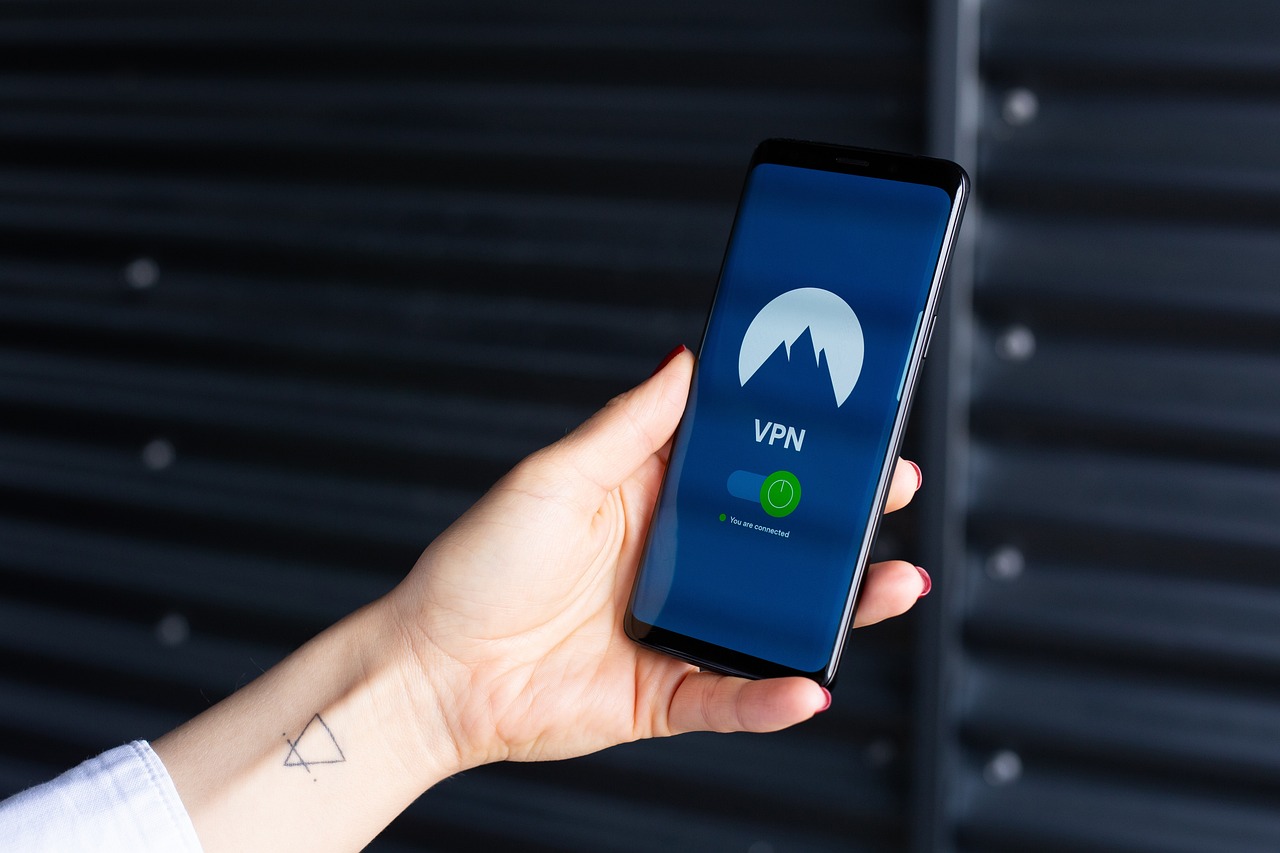
Financial Implications
When your online accounts are compromised, the financial repercussions can be severe and immediate. Imagine waking up one morning to find that your bank account has been drained, or worse, that someone has taken out a loan in your name. It's a nightmare scenario, but unfortunately, it's a reality for many individuals who fall victim to cybercrime. The first step in understanding the financial implications is recognizing the potential for unauthorized transactions. This could range from small, seemingly harmless purchases to large sums that can devastate your finances in a matter of days.
After a breach, it’s crucial to monitor your financial accounts diligently. Keeping an eye on your statements can help you spot any discrepancies early on. You might even consider setting up transaction alerts with your bank, which can notify you of any suspicious activity as it happens. For example, if you receive a notification for a purchase you didn’t make, you can act quickly to report it. The sooner you catch these unauthorized transactions, the better chance you have of mitigating the damage.
Moreover, the impact of a compromised account isn't just limited to immediate financial loss. It can lead to long-term financial instability. For instance, if identity thieves gain access to your credit card information, they could rack up charges that you are ultimately responsible for. This can lead to a cascade of issues, including late fees, increased debt, and even bankruptcy in extreme cases. Additionally, dealing with the aftermath of a breach can be time-consuming and costly. You may need to spend hours on the phone with your bank, credit card companies, and possibly even legal advisors, all of which can add to your financial burden.
Another critical aspect to consider is the potential for credit score damage. A compromised account can negatively affect your credit score in various ways. If identity thieves open new accounts in your name and fail to pay the bills, those missed payments will reflect poorly on your credit report. This can hinder your ability to secure loans or favorable interest rates in the future. Therefore, it’s essential to monitor your credit score regularly and take steps to recover from any damage incurred.
In conclusion, the financial implications of a compromised account can be extensive and far-reaching. From unauthorized transactions and potential debt accumulation to long-term effects on your credit score, the consequences are serious. It's vital to act swiftly and take proactive measures to safeguard your financial health. Remember, your financial security is just as important as your personal security in the digital age.
- What should I do immediately after discovering a compromise?
Change your passwords, enable two-factor authentication, and notify your bank or financial institutions.
- How can I monitor my financial accounts effectively?
Set up transaction alerts, regularly check your bank statements, and consider using credit monitoring services.
- Will my insurance cover losses from a compromised account?
It depends on your policy. Review your coverage and consult with your insurance provider to understand your protections.
- How can I improve my online security to prevent future breaches?
Use strong, unique passwords for each account, enable two-factor authentication, and be cautious of phishing attempts.
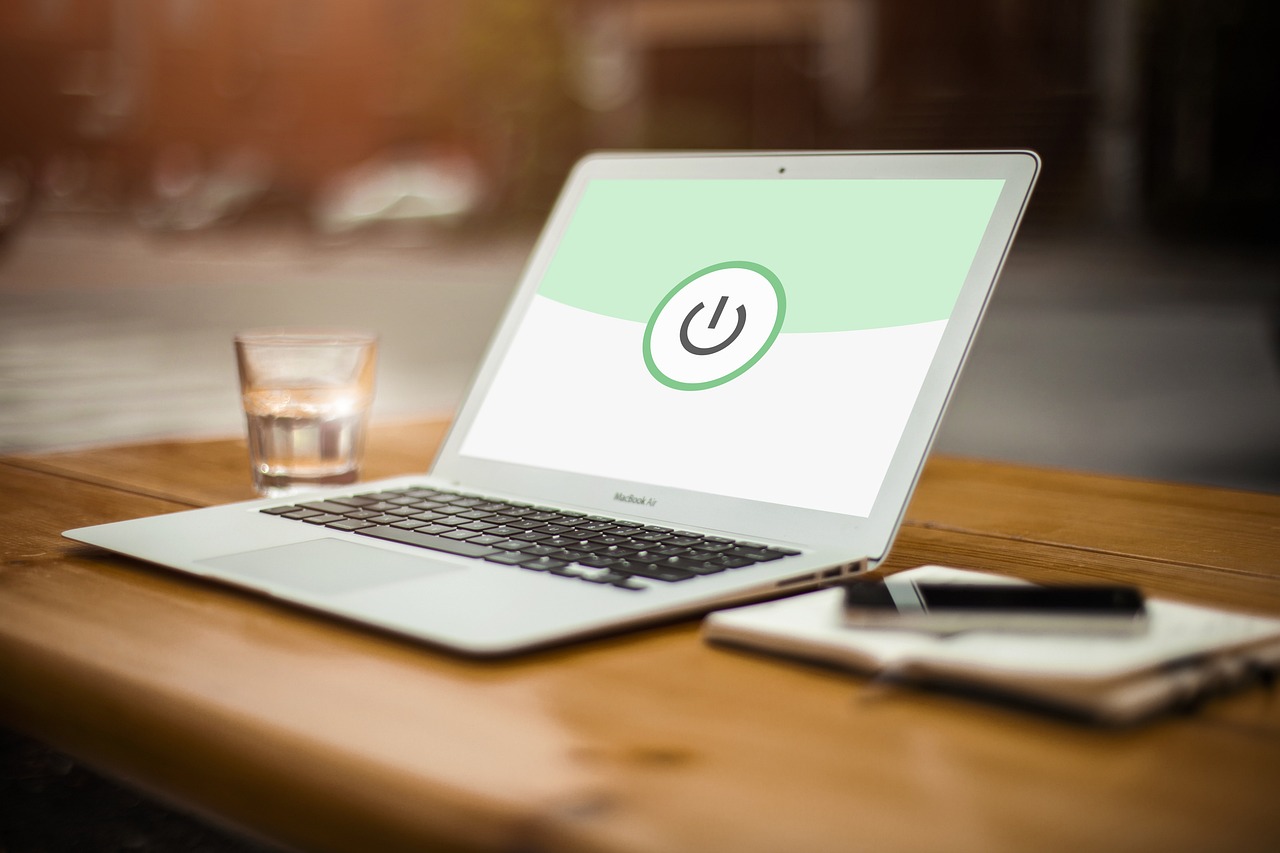
Insurance and Liability
When your online accounts are compromised, understanding the insurance implications becomes a crucial part of your recovery strategy. Many people assume that their insurance policies will automatically cover losses incurred due to identity theft or unauthorized transactions, but the reality can be quite different. Depending on your specific policy, you may find that certain protections are in place, while others are not. For instance, some homeowners' insurance policies include identity theft coverage, which can help you recover lost funds and cover expenses related to restoring your identity.
However, it's essential to read the fine print. Not all policies are created equal, and many have exclusions that can leave you vulnerable. For example, liability coverage can vary significantly, with some policies offering only limited protection against online fraud. In the aftermath of a breach, you might find yourself grappling with unexpected costs, including legal fees, lost wages, and even costs associated with credit monitoring services. To illustrate this, consider the following table that outlines common types of insurance coverage and their potential benefits:
| Insurance Type | Coverage Benefits |
|---|---|
| Homeowners Insurance | May include identity theft protection, covering costs related to restoring your identity. |
| Credit Card Protection | Often covers unauthorized transactions, limiting your liability to a certain amount. |
| Identity Theft Insurance | Specifically designed to cover costs associated with identity theft recovery. |
| Cyber Liability Insurance | Typically aimed at businesses but can protect individuals against data breaches. |
Another critical aspect to consider is your liability in the event of unauthorized activities. If someone gains access to your accounts and makes fraudulent transactions, you might be held responsible for those actions, especially if you did not take adequate measures to secure your accounts. This is where having a proactive approach to online security pays off. For instance, using strong, unique passwords and enabling two-factor authentication can significantly reduce your risk of liability.
In summary, while insurance can provide a safety net after a compromise, it’s not a cure-all. Being informed about your coverage and understanding your liabilities can empower you to act swiftly and effectively in the wake of an online breach. Always consult with your insurance provider to clarify what protections are in place and consider additional coverage if necessary. Taking these steps can help you navigate the turbulent waters of identity theft and online fraud with greater confidence.
- What should I do immediately after discovering my account has been compromised? Change your passwords, enable two-factor authentication, and notify your bank or credit card company.
- Will my insurance cover all losses related to identity theft? It depends on your policy. Review your coverage details carefully.
- How can I protect myself from future breaches? Use strong, unique passwords, enable two-factor authentication, and regularly monitor your accounts.

Credit Score Impact
The impact of a compromised account on your credit score can be both alarming and far-reaching. When your online accounts are breached, particularly financial accounts, it opens the door for identity thieves to wreak havoc on your financial reputation. Imagine waking up one day to find that your credit card has been maxed out by someone you don’t even know. This isn’t just a minor inconvenience; it can lead to a significant drop in your credit score, which can affect everything from your ability to secure loans to the interest rates you’re offered.
Identity theft can result in unauthorized transactions that, if not addressed promptly, can lead to long-term damage. For instance, if someone uses your identity to apply for credit, that inquiry can show up on your credit report, negatively impacting your score. Additionally, if they fail to make payments on those accounts, it can lead to missed payments being reported to credit bureaus, further damaging your credit profile.
Furthermore, the longer it takes for you to notice these discrepancies, the more severe the impact can be. According to the Federal Trade Commission, victims of identity theft often take months or even years to fully resolve their issues. During this time, your credit score can suffer greatly, leading to difficulties in securing housing, employment, or even insurance. In fact, many employers check credit scores as part of their hiring process, and a low score could hinder your job prospects.
To give you a clearer picture, here’s a breakdown of how your credit score can be impacted:
| Factor | Impact on Credit Score |
|---|---|
| Unauthorized Credit Applications | Can decrease score by up to 100 points |
| Missed Payments | Can decrease score by 50-100 points per missed payment |
| High Credit Utilization | Can decrease score by 30-50 points |
To mitigate these risks, it’s crucial to monitor your credit regularly. Many financial institutions offer free credit monitoring services that can alert you to any unusual activity. Additionally, consider placing a fraud alert or even a credit freeze on your accounts, which can help protect you from further damage.
Ultimately, being proactive about your credit health can make a significant difference in the aftermath of a breach. Take the time to educate yourself on your rights as a consumer and the steps you can take to protect your financial future. Remember, your credit score is not just a number; it’s a reflection of your financial responsibility and can impact many aspects of your life.
- What should I do if I suspect my account has been compromised? Immediately change your passwords and enable two-factor authentication on all accounts.
- How can I monitor my credit score for free? Many services, including Credit Karma and your bank, offer free credit monitoring.
- Will a credit freeze affect my credit score? No, a credit freeze does not affect your credit score; it simply prevents new accounts from being opened in your name.

Emotional and Psychological Effects
When your online accounts are compromised, the emotional and psychological effects can be profound and far-reaching. Imagine waking up one day to find that someone has invaded your digital life, rummaging through your personal messages, photos, and even your financial information. It’s like having a stranger break into your home and sift through your belongings—an experience that can leave you feeling violated and vulnerable.
One of the most immediate reactions is often anxiety. You may find yourself constantly worrying about what information has been stolen and how it might be used against you. This anxiety can manifest in various ways, such as trouble sleeping, irritability, and an overwhelming sense of fear. It’s not uncommon to feel like you’re on edge, as if you’re waiting for the next shoe to drop. You might even start second-guessing your online interactions, wondering if anyone can be trusted.
Another significant psychological impact is the feeling of loss of control. In a world where we increasingly rely on digital platforms for everything from banking to socializing, a breach can leave you feeling powerless. You might begin to question your ability to protect your personal information, leading to a sense of helplessness. This can create a cycle of negative thoughts that exacerbates your emotional distress.
Moreover, the sense of violation can lead to a profound loss of trust. You may find it hard to engage with technology the way you once did. Friends and family might notice your reluctance to share information or your hesitance to use certain online services. This loss of trust can extend beyond digital interactions and seep into your real-life relationships, as you may become more guarded and less open with those around you.
In some cases, individuals experience symptoms akin to post-traumatic stress disorder (PTSD) after their accounts are compromised. This can include flashbacks to the moment you discovered the breach, nightmares about identity theft, or even physical symptoms like panic attacks. It's essential to acknowledge these feelings and seek support, whether through friends, family, or professional counseling.
To cope with the emotional toll, it can be beneficial to engage in activities that promote mental well-being. Here are some strategies to consider:
- Talk it out: Sharing your feelings with someone you trust can provide relief and perspective.
- Limit exposure: Take breaks from social media and online platforms to reduce anxiety.
- Practice mindfulness: Techniques such as meditation and deep breathing can help ground you.
- Stay informed: Learning about how to protect your accounts can empower you and reduce feelings of helplessness.
Ultimately, the emotional and psychological effects of having your online accounts compromised are significant and should not be underestimated. It’s important to recognize that these feelings are valid and that recovery takes time. By taking proactive steps to address your emotional health, you can regain a sense of control and security in your digital life.
- What should I do first if I suspect my account has been compromised? Immediately change your password and enable two-factor authentication if available.
- Can I recover my account after it has been compromised? Yes, most platforms have recovery processes in place. Follow their guidelines to regain access.
- How can I protect myself from future breaches? Use strong, unique passwords for each account and consider using a password manager.
- Is it normal to feel anxious after a breach? Absolutely. Many people experience anxiety and a sense of violation after their accounts are compromised.
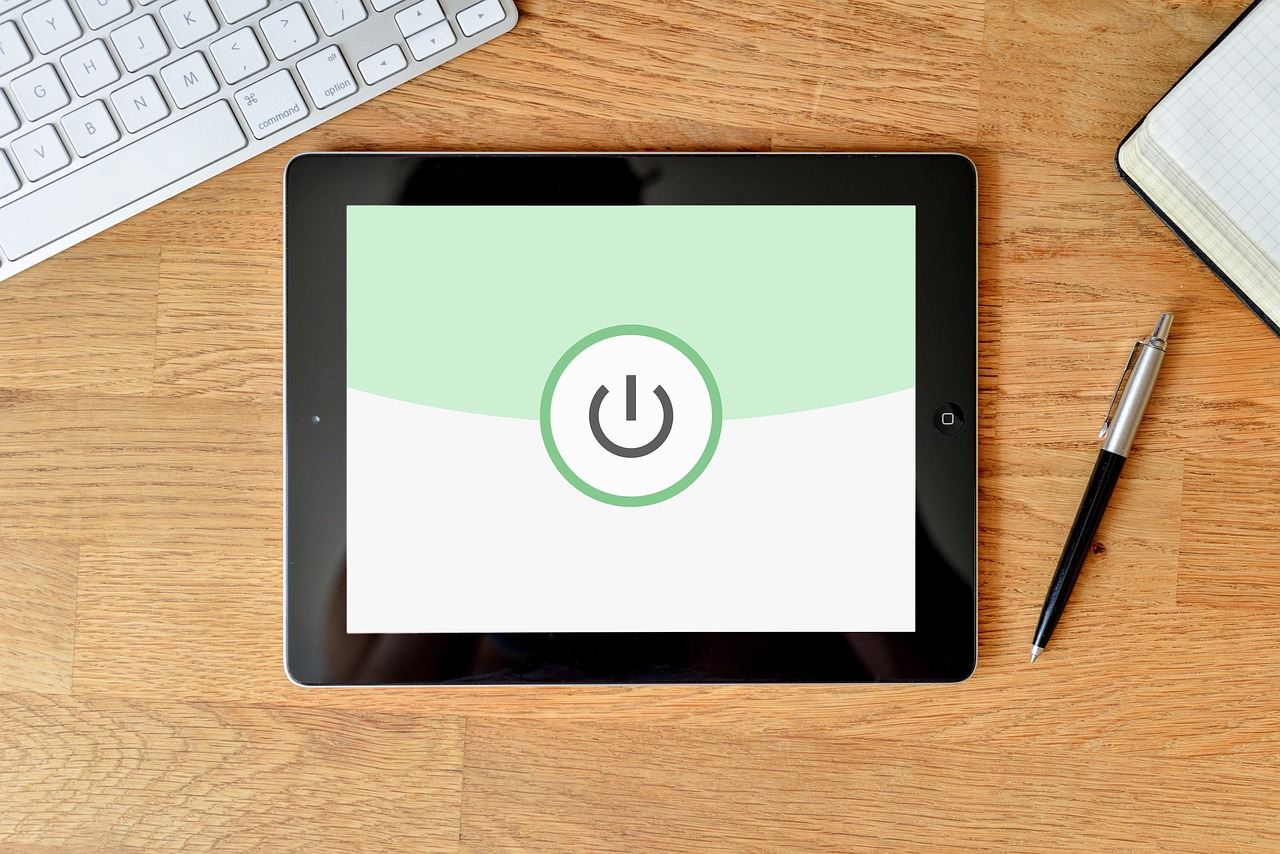
Steps to Take After a Compromise
Discovering that your online accounts have been compromised can feel like a punch to the gut. The first wave of panic often leaves you wondering what to do next. The key is to act swiftly and decisively. Your digital safety is at stake, and every second counts. Here’s a roadmap to guide you through the murky waters of account recovery.
First and foremost, change your passwords immediately. This might seem like a no-brainer, but it’s one of the most effective ways to regain control over your accounts. Use a strong, unique password for each account. A good password is like a sturdy lock on your door—it keeps unwanted visitors out. If you’re struggling to come up with complex passwords, consider using a password manager. These tools can generate and store secure passwords for you, making it easier to protect your accounts.
Next, enable two-factor authentication (2FA) wherever possible. This adds an extra layer of security, requiring not just your password but also a second form of verification, like a text message or authentication app. Think of it as a double lock on your door—just because someone has the key doesn’t mean they can get in without the second lock being opened. Implementing 2FA can significantly reduce the likelihood of unauthorized access to your accounts in the future.
Once you’ve secured your accounts, it’s crucial to monitor your financial statements and credit reports. Look for any unauthorized transactions or accounts that you don’t recognize. This is where the real damage can occur, and catching it early can help mitigate the fallout. If you notice anything suspicious, report it to your bank or credit card company immediately. They can help you freeze your accounts and investigate any fraudulent activity.
Additionally, consider placing a fraud alert on your credit report. This is a simple step that can provide an extra layer of protection. A fraud alert notifies creditors to take extra steps to verify your identity before opening new accounts in your name. It’s like putting a sign on your credit report saying, “Hey, double-check before you lend me money!”
Lastly, keep a close eye on your online presence. Regularly search for your name on search engines to see if any unauthorized accounts have been created in your name. If you find any, take steps to have them removed. You can also set up Google Alerts for your name to be notified of any new mentions. This proactive approach can help you stay ahead of any potential identity theft.
In summary, while having your online accounts compromised can feel overwhelming, taking swift action can help you regain control. Change your passwords, enable two-factor authentication, monitor your financial accounts, place a fraud alert, and keep an eye on your online presence. By following these steps, you can not only recover from a compromise but also fortify your defenses against future threats.
- What should I do if I can’t access my compromised account?
If you’re locked out of your account, use the account recovery options provided by the service. This usually includes answering security questions or receiving a recovery email.
- How can I tell if my account has been compromised?
Look for unusual activity, such as unfamiliar login locations, password change notifications, or emails about account changes that you didn’t initiate.
- Is it safe to use public Wi-Fi after a compromise?
Be cautious. Public Wi-Fi can be a hotspot for hackers. Avoid logging into sensitive accounts until you’re on a secure network.
- Can I prevent future compromises?
Yes! Use strong, unique passwords, enable two-factor authentication, and regularly update your security settings.

Recovering Your Accounts
Recovering your accounts after a compromise can feel like navigating a maze blindfolded. It’s daunting, but with a clear plan, you can regain control and enhance your security. First and foremost, act quickly. The longer you wait, the more damage can be done. Begin by changing your passwords immediately. Choose passwords that are long, unique, and complex. A good password is like a strong lock on your door; it keeps unwanted visitors out!
Next, take advantage of any recovery options your service providers offer. Most platforms have a recovery process for compromised accounts, which often includes verifying your identity through email, SMS, or security questions. Make sure to follow their instructions carefully. If you’re locked out, don’t panic; just follow the steps provided. It’s like finding your way out of a dark room—keep moving until you hit the light switch!
Once you regain access, it’s essential to review your account activity. Look for any unauthorized transactions or changes. If you spot anything suspicious, report it immediately to the service provider. They can help you address any fraudulent activity. Additionally, consider enabling two-factor authentication (2FA) on all your accounts. This adds an extra layer of security, making it much harder for hackers to gain access, even if they have your password.
Here’s a quick summary of steps to take when recovering your accounts:
- Change your passwords immediately.
- Utilize account recovery options provided by the service.
- Review your account activity for unauthorized changes.
- Enable two-factor authentication for added security.
Lastly, don’t forget to inform your friends and family about the breach, especially if you suspect that your account may have been used to contact them. This way, they can be cautious about any suspicious messages or requests they might receive. Remember, recovering from a compromise is not just about getting back into your accounts; it’s about reinforcing your digital defenses to prevent future breaches. By taking these steps, you’re not just putting out the fire; you’re also ensuring that your house is equipped with smoke detectors and fire extinguishers for the future!
Here are some common questions regarding account recovery:
- How long does it take to recover a compromised account? - The recovery time varies depending on the service provider and the complexity of the breach. Some accounts can be restored within minutes, while others may take longer.
- What should I do if I can’t recover my account? - If you’re unable to regain access, contact customer support for assistance. They may have additional recovery options.
- Is it safe to use the same password across different accounts? - No, using the same password increases the risk of multiple accounts being compromised. Always use unique passwords for each account.
- Should I monitor my accounts after a breach? - Absolutely! Monitoring your accounts regularly can help you catch any unauthorized activity early.

Preventative Measures for the Future
When it comes to safeguarding your digital life, being proactive is your best defense. After experiencing the fallout from a compromised account, it’s essential to implement preventative measures that can help you avoid future breaches. Think of these steps as the digital equivalent of locking your doors and installing an alarm system in your home. Here are some key strategies to consider:
First and foremost, strong passwords are your first line of defense. A weak password is like leaving your front door wide open. Make sure your passwords are at least 12 characters long and include a mix of uppercase letters, lowercase letters, numbers, and special characters. Additionally, avoid using easily guessable information like your birthday or pet’s name. To help manage these complex passwords, consider using a password manager. This tool can generate and store strong passwords securely, so you don’t have to remember them all.
Another crucial step is to enable two-factor authentication (2FA) on your accounts. This adds an extra layer of security by requiring not just your password but also a second form of verification, such as a text message or an authentication app. Think of it as having a second lock on your door; even if someone has your key (your password), they still can’t get in without the second piece of information. Many services now offer 2FA, so take advantage of it wherever possible.
Regularly monitoring your accounts is also vital. This means checking your bank statements, credit reports, and online accounts frequently for any unauthorized activity. Set up alerts for transactions over a certain amount or any changes made to your account settings. If something looks off, address it immediately. Just like you wouldn’t ignore a strange noise in your house, don’t ignore suspicious activity in your financial accounts.
Lastly, stay informed about the latest security threats. Cybersecurity is an ever-evolving field, and new vulnerabilities arise all the time. Follow reputable tech news sources or blogs that focus on cybersecurity to keep your knowledge up to date. Understanding the tactics that hackers use can help you better defend against them. Remember, knowledge is power!
In summary, taking these preventative measures can significantly reduce the risk of future account compromises. By creating strong passwords, enabling two-factor authentication, monitoring your accounts, and staying informed, you can fortify your digital presence and protect your personal information from cyber threats.
- What should I do if I suspect my account has been compromised?
Immediately change your password, enable two-factor authentication, and monitor your account for any unauthorized activity. - How often should I change my passwords?
It's recommended to change your passwords every 3-6 months, or sooner if you suspect a breach. - Is using a password manager safe?
Yes, reputable password managers use strong encryption to keep your passwords secure, making them safer than trying to remember multiple complex passwords. - Can two-factor authentication be bypassed?
While 2FA significantly enhances security, it's not foolproof. Always use it in conjunction with strong passwords and other security measures.
Frequently Asked Questions
- What should I do immediately after discovering my account has been compromised?
First and foremost, change your password right away! This is like locking the door after realizing it was left open. Additionally, enable two-factor authentication if you haven't already. It's crucial to check for unauthorized transactions and alert your bank or service provider about the breach.
- How can a compromised account affect my finances?
A compromised account can lead to unauthorized transactions, which might drain your bank account faster than you can say “identity theft.” It’s essential to monitor your financial accounts closely and report any suspicious activity immediately to minimize losses.
- Will my credit score be affected if my online account is hacked?
Yes, it can be! If someone gains access to your financial accounts and starts making unauthorized purchases, it can lead to missed payments and increased debt, ultimately hurting your credit score. Keeping an eye on your credit report is vital after a breach.
- What emotional effects can I expect after my account is compromised?
It’s completely normal to feel anxious, stressed, or even violated after your online accounts are hacked. Think of it as a digital break-in; it can leave you feeling vulnerable. Seeking support from friends or professionals can help you navigate these feelings.
- How can I recover my compromised accounts?
Start by following the recovery procedures outlined by the service provider. This often includes verifying your identity and resetting your password. Once you regain access, review your account activity for any unauthorized actions and report them immediately.
- What preventative measures can I take to avoid future breaches?
Implementing strong, unique passwords for each account is key—think of it as having a different key for every door in your house. Additionally, enable two-factor authentication and regularly update your security settings to keep your accounts safe from future attacks.












